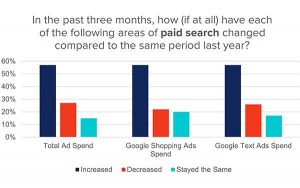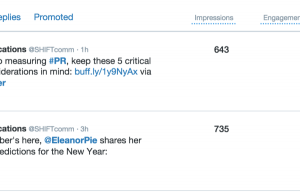Why organizations are re-imagining the role and expectations of senior marketing leaders.
The chief marketing officer role has had quite a ride this year, with many brands falling in — and out — of love with the C-level marketing position in 2019. Coca-Cola announced this week it was promoting Manolo Arroyo, president of the Asia Pacific Group, to chief marketing officer after not having a CMO since 2017. Unilever, a company whose former CMO Keith Weed helped lead the fight for a more transparent advertising ecosystem, elevated Conny Braams from EVP of Unilever Middle Europe to chief marketing officer and chief digital officer in March. The company had left the position unfilled following Weed’s departure in December 2018.
Still, other major brands have moved away from the CMO role this year. In July, after McDonald’s CMO Silvia Lagnado exited the company, the brand named two SVP-level roles: an SVP of global marketing and an SVP of marketing technology, but no C-level marketing position. Lyft lost its CMO in May and has not replaced the role since. (In fact, if you search for the word “marketing” on the ride sharing app’s leadership page, you’ll get zero results). Johnson & Johnson is another big brand that decided to cut the CMO role this year when it parted ways with its Chief Marketing Officer Alison Lewis, releasing a statement that the company was establishing, “A new business model that streamlines priorities, allows us to operate more efficiently and increases our investment in categories that offer high potential for growth.”
What’s in a name…or title?
What a company does with the CMO roles makes a statement, says Marketing Land columnist Anand Thaker. He believes a brand’s choice to leave the role unfilled points to the broader evolution happening between brands and their relationship with the customer. It’s difficult to tell if the industry is leaning away from the CMO title or if brands are simply “re-delegating” CMO responsibilities to new C-level officers. Last month, JCPenney announced Karl Walsh as chief digital officer after naming Shawn Gensch chief customer officer in June. Walsh will lead JCPenney’s digital platforms and the company’s consumer-facing website (overseeing e-commerce initiatives) and will report to Gensch. As CCO, Gensch is, “Responsible for revitalizing the company’s brand, leading marketing initiatives across all channels, shaping the company’s messaging and delivering an outstanding digital experience to JCPenney’s customers,” according to the company’s leadership page.
In JCPenney’s leadership structure, with no CMO in place, digital strategy and online commerce fall into the overarching “customer experience” division led by the chief customer officer who also oversees branding, marketing and messaging. (JCPenney declined to comment when asked about its decision to have CCO and CDO roles versus a dedicated CMO.)
“The CMO title is really semantics,” says Keith Johnston, VP and research director for Forrester, “The significance of all this is really a final signal that whatever the title is, those in it need to rise to the skills and leadership requirements of what the diverse role of the modern ‘C_O’ must be.”
Johnston says, as things stand with everyone having access to the same technology, branding is more important than ever.
“Disrupters are always around the corner. None of this is about killing what the CMO does, but rather raising the bar to what they may not be delivering: no brand can be launched, sold, experienced or serviced without a synchronized brand strategy (BX) and customer experience strategy (CX),” said Johnston, “The ‘customer’ simply does not separate the two in reality or in their emotions.”
The underlying factor: Growth
Johnston, who helped write Forrester’s recent look at the CMO role, says we are in an era where the demand for growth isn’t a yearly conversation, but one that happens from quarter to quarter — and CMOs are in the middle of it.
“Our research has had ‘growth’ as the #1 goal four out of the last five years for the CMO,” said Johnston.
Following growth, other top goals for the CMO role include customer experience, improved products and services and the ability to innovate, which, as Johnston points out, may not even be initiatives the CMO can control.
“Marketing has a role, of course, but you need more. Budgets and decisions need to be harmonized to drive real growth in today’s market,” said Johnston, “It requires customer focus, great strategy and a brand that speaks to both customers and employees. This is a lofty demand for today’s current CMOs which is why we are reaching for new titles and talent.”
Upgrading the CMO role
Erica Seidel, CEO of The Connective Good, an executive recruitment firm specializing in marketing and marketing technology roles, says she sees a shift happening with CEOs looking at their whole team and realizing they need a lot of upgrading.
“They start that upgrade with a role that can be nice and broad. In that way, the CMO role becomes a ‘breakthrough’ role with tentacles into product, experience, etc,” said Seidel. Her insight into the industry and the CMO role match Forrester’s research that the CMOs who will thrive in the coming year will be the ones who understand customer experience as essential to building the brand.
“In some companies, the CMO role is breaking ‘up’ — splintering into the niche specialties of marketing,” said Seidel. This appears to be what JCPenney is doing with its CCO and CDO roles. But in other cases, Seidel says the CMO role is actually ‘breaking through’ and owning a number of responsibilities that previously may not have belonged to the brand’s marketing organization.
“Strategy, product, channels, customer experience, pricing, analytics and more are unifying into a powerful — and increasingly interconnected — scope of responsibility,” said Seidel, “Just like software, both the best-of-breed and all-in-one approaches can work.”
Marketing’s impact remains the same — regardless of the title
A number of forces are driving these changes for the CMO role. For one, companies are becoming acutely aware of how siloed their teams are in connection to the customer journey. Two, digital transformation and the explosion of marketing technologies have expanded expectations of marketing organizations.
“If we’ve learned anything in the last two decades of digital disruption, it’s that customers won’t wait for companies to change,” said Johnston who believes the chief digital officer role has been nothing more than a proxy for the limitations of the current leadership, “For the CMO, adding this role is code for ‘you’re not digital enough’ for the CIO.”
Regardless of the title, marketing’s role is still focused on the same goals: growing the brand and building an audience, all while delivering exceptional customer experiences, no matter the channel. CMOs, CDOs and chief customer officers are all aiming for the same results, proving the acronyms matter less than what the role can produce.
“The brand ethos that has built many billion-dollar companies still rings true,” said Johnston, “It has just taken a different shape. Hence, whatever the title, the role of the senior-most marketing executive must be seen as a business-critical thinker by the CEO and the board; but that leader must have the modern remit to drive growth effectively and deliver the value of today’s customers’ demand.”
Marketing Land – Internet Marketing News, Strategies & Tips
(34)
Report Post








